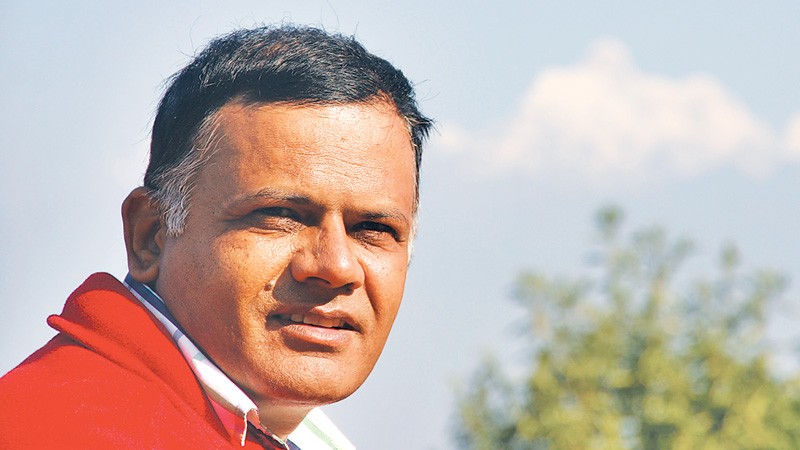Bookworm Babbles
Kathmandu, November 9, 2016: The author of Mantha Darayeko Jug—the recipient of the 2015 Padmashree Literary Award—Mohan Mainali is a man with many hats. A journalist, an avid travel enthusiasts and a documentary filmmaker, Mainali’s documentaries, The Living of Jogimara and Puneko Pant, have been popular fixtures at film circuits in the past. In this interview with Samikshya Bhattarai, he talks about how books have shaped his life and career. Excerpts:
What served as the inspiration for your critically-acclaimed book?
Working as a journalist, I had the opportunity to travel to various parts of the country and meet people living in very harsh conditions. During these visits, I also ran into many people who didn’t approve of the Maoist insurgency but actively participated in it, or were adversely affected by it. The anguish and sufferings I witness in these travels inspired me to write a book incorporating all that I’d witnessed. These stories seldom come to light and I wanted to change that.
How has your love for reading helped your documentary making?
My reading habit has been central to not just documentary making but all aspects of my life. Reading books provides a person with new ideas and, in my case, every time I read book, I get new subjects that I can explore through my writing or documentaries. Also, reading books of various subjects has helped me understand the interconnectedness of things better, which has in turn given depth and clarity to my writing and my thought processes.
Who are some of your favourite authors?
My favourite writer is Tulsiram Kunwar as his book introduced me to the world of literature. Other authors that I love reading include Ernest Hemingway, Ruskin Bond, Aldous Huxley and George Orwell. Among Nepali writers, I like the works of Laxmi Prasad Devkota, Balkrishna Sama, Guru Prasad Mainali, Lainsingh Bangdel, Madhav Ghimire and Bhupi Sherchan.
Do you have a preferred genre while picking out books?
I have a soft spot for memoirs and travel journals. A well-written memoir feels as good as reading fiction and to add it also shows the actual realities of a society. I enjoy memoirs because they help readers empathise with the pain and strife that people go through, regardless of their stature or success. You live your life only once, but through memoirs you can live so many different lives and see the world through so many perspectives.
Some memoirs, particularly Nepali ones, however, are filled with exaggerations and grandiosity; I avoid them like the plague.
You also host workshops and trainings for journalists; what books do you feel are must-reads for those interested in writing?
I think journalists (and writers) need to have clarity on two basic tenets: First is ‘what to communicate’ and secondly, ‘how to communicate it’. At workshops, I strongly recommend delving into non-fiction and creative journalism pieces because they can be illuminating in regards to thoroughly researching a topic and expressing them in creative and impactful ways.
What is good writing for you?
Good writing, for me, hinges on two things: First, the depth of research that has been done; and secondly, how well it has been presented. Writers should have clear understanding about the subject they are writing about in order to become good writers. Also, if the presentation is lacking, the subject matter will scarcely matter. The key, I feel, is in revision. The more you revise your pieces, the more clarity you find.
What are some ways that books have influenced your lifestyle?
My life is a collage of the small things I’ve picked up from the different books I have come to read. For instance, I started scouring for information of Nepal after reading Tony Hagen’s Nepal. Ernest Hemingway’s Farewell to Arms made me a pacifist. Laxmi Prasad Devkota’s works challenged me to look at life in a different light. The list goes on.
Any parting words for fellow bibliophiles?
If you give them the chance, books can become trustworthy friends that you can always turn to. It is not enough that you know the world from your point of view. And books are great mediums to understand the world through multitude of experiences. The more you read, the more you understand and the more you enjoy the act; and before you know it, it is a habit you just cannot do without.







